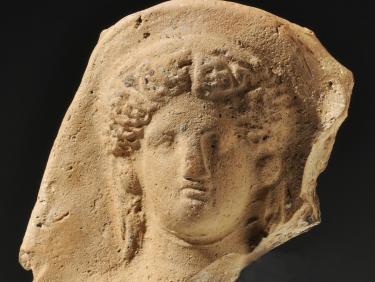Faculty of Philosophy Greek/Classical Philology
Students of Greek studies learn about Ancient Greek from the perspective of literary studies and linguistics. The cultural history of ancient Greece is also of major importance in order to understand the historical texts.
The reign of Greek philology ends at the threshold to the Middle Ages, approx. in the 6th century AD. Two approaches that complement each other play a decisive role in the subject’s methods: the historical and the literary approach. The historical approach is concerned with the discernment of a text’s origin as well as of its significance within the context of the time at which it was created. This approach connects Greek philology to other antiquity studies, especially Ancient History, Classical Archaeology, and Indo-European Studies. Together with these three disciplines, Greek philology strives to explore ancient Greco-Roman culture. The literary approach focusses on the texts themselves, including their form, their message, and their stylistic-aesthetical qualities. This approach creates links to the other philological subjects that investigate similar topics in their fields. The reference of Greek philology to present times is essential for the purpose of the subject itself as well as for the entire academic programme.

Special Features and Characteristics
The main point of interest of classical philology in Heidelberg is the formation of text-based linguistic, cultural and literary theories. Special attention is paid to studying the continued impact of antique texts in the modern world.
Students in the Bachelor’s programme will therefore gain insights into:
- Greek literary studies, which deals with the entirety of Greek literature from Homer to Heliodorus from a literary and cultural-historical perspective. A focal point in literary studies is on the narrative mode in which people deal with their experiences and establish themselves in the world.
- Greek linguistics, which is dedicated to the formal description of texts from a systematic and historical perspective and in particular to the investigation of the Greek’s language-theoretical way of thinking and rhetoric, narration research, prosody and metric, text criticism and editorial philology.
Research
In the field of research, Greek literary studies in Heidelberg deals with a plethora of authors, ranging from Homer to Heliodorus. In addition, there is a focus on epic poems, historical narratives, novels and antique literary criticism. Furthermore, the research activities also focus strongly on contemporary literary theory, narratological, phenomenological and cognitive-scientific approaches.
Occupational Areas
The majority of students who pursue a degree in Greek studies do so in order to become Greek teachers at the Gymnasium level (upper secondary school). Along with teaching careers, many other career options are available to Greek experts: Following completion of the degree programme, students may pursue a doctoral degree and work in teaching and research at a university. Libraries, (academic) publishing houses, and museums represent further professional options. The interdisciplinary skills learned as a part of the Greek studies programme, such as the ability to easily assimilate new topics and to think flexibly, provide graduates with qualifications that also prepare them for potential careers in corporate or organisational management.
Insights

Studying Greek Philology has provided me with insights into a exciting and foreign world that is characterised by sensuality and vibrant deities. The temporal and cultural distance to current politics and polemics is what I find particularly appealing about this subject. We are given the opportunity to discuss fundamental human questions according to lawful conduct and with different insights. Greek studies in Heidelberg is characterised by the young teaching staff’s affinity for Anglo-American research approaches, such as narratology, as well as by the spectacular lectures by internationally recognised professors.”
Tobias Hirsch, 24, Greek/Classical Philology, 8th semester Teaching degree




